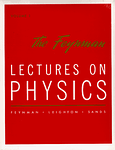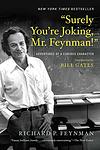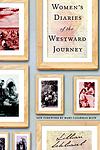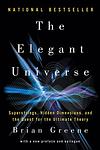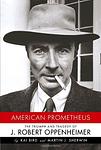The Greatest American "Physics" Books of All Time
Click to learn how this list is calculated.
This list represents a comprehensive and trusted collection of the greatest books. Developed through a specialized algorithm, it brings together 300 'best of' book lists to form a definitive guide to the world's most acclaimed books. For those interested in how these books are chosen, additional details can be found on the rankings page.
Genres
The category of "Physics" in books encompasses a wide range of topics related to the study of matter, energy, and the fundamental laws of the universe. It includes books on classical mechanics, electromagnetism, thermodynamics, quantum mechanics, relativity, astrophysics, and more. These books explore the principles and theories that govern the behavior of the physical world, and often delve into the cutting-edge research and discoveries in the field. Whether you are a student, a scientist, or simply interested in the workings of the universe, the category of "Physics" offers a wealth of knowledge and insight.
Countries
Date Range
Reading Statistics
Click the button below to see how many of these books you've read!
Download
If you're interested in downloading this list as a CSV file for use in a spreadsheet application, you can easily do so by clicking the button below. Please note that to ensure a manageable file size and faster download, the CSV will include details for only the first 500 books.
Download-
1. The Feynman Lectures on Physics by Richard P. Feynman
This book is a comprehensive collection of lectures on physics by a renowned physicist, covering everything from classical mechanics to quantum mechanics, electromagnetism, and statistical mechanics. These lectures, designed to be accessible to those without a deep background in the subject, offer a unique and insightful perspective on the fundamental principles of physics, combining rigorous scientific explanation with engaging anecdotes and analogies. The book is widely regarded as an essential resource for anyone interested in or studying the field of physics.
-
2. The Making of the Atomic Bomb by Richard Rhodes
This comprehensive book provides an in-depth account of the development of the atomic bomb during World War II. It explores the scientific advancements that made the bomb possible, the political decisions that led to its creation, and the moral dilemmas faced by the scientists involved. The book also details the personalities of key figures in the Manhattan Project, the effects of the bomb on Hiroshima and Nagasaki, and the impact of nuclear weapons on the world.
-
3. "Surely You're Joking, Mr. Feynman!": Adventures of a Curious Character by Richard P. Feynman
The book is an autobiography of a Nobel Prize-winning physicist, filled with humorous and insightful anecdotes from his life. It highlights his adventures from his early years, working on the Manhattan Project, to his teaching years at Caltech. The book showcases his unconventional thought process, his insatiable curiosity, and his passion for science, painting a vivid picture of a man who never stopped questioning and learning.
-
4. Women's Diaries of the Westward Journey by Lillian Schiessel
This book provides a poignant and revealing collection of personal accounts from women who traveled across the American frontier during the 19th century. Through the intimate lens of their diaries and letters, it offers a unique perspective on the hardships, hopes, and daily lives of female pioneers. The narratives highlight the emotional and physical challenges these women faced, from dealing with disease and death to managing domestic duties in the harsh and often unforgiving environment. The compilation not only serves as a historical record of the westward expansion but also as a testament to the resilience and strength of women in the face of adversity.
-
5. One Two Three . . . Infinity: Facts and Speculations of Science by George Gamow
This book explores complex scientific concepts and theories in a manner that is accessible to the general reader. It discusses a wide range of topics, from atoms and molecules, through the principles of mechanics, to elements of probability theory. The book also ventures into the realms of modern physics, discussing quantum theory and relativity, as well as exploring the universe, discussing its size, structure and the theory of its origin. In addition, it also speculates about the possibilities of other dimensions and time travel.
-
6. The Elegant Universe by Brian Greene
"The Elegant Universe" by Brian Greene is a captivating exploration of the fundamental principles of physics, delving into the intricate world of string theory and its potential to unify the laws of the universe. Through vivid explanations and thought-provoking analogies, Greene takes readers on a journey from the early discoveries of Newton and Einstein to the cutting-edge theories of quantum mechanics and relativity. With a blend of scientific rigor and accessible language, the book offers a compelling narrative that challenges our understanding of space, time, and the nature of reality itself.
-
7. The Dancing Wu Li Masters by Gary Zukav
"The Dancing Wu Li Masters" is a book that explores the concepts of quantum physics and relativity in an accessible way for non-scientists. The author uses metaphors and analogies, drawing on Eastern philosophies and spiritual concepts to explain complex scientific theories. The book delves into topics such as the nature of reality, the relationship between observer and observed, and the interconnectedness of all things, aiming to bridge the gap between science and spirituality.
-
8. American Prometheus by Kai Bird, Martin J. Sherwin
"American Prometheus" is a biography that explores the life of the physicist who led the Manhattan Project, which developed the atomic bomb during World War II. This book offers a comprehensive look at his personal life, scientific achievements, and the moral implications of his work. It also delves into his political activism, his blacklisting during the McCarthy era, and his struggle with depression and cancer.
-
9. The Particle At The End Of The Universe by Sean Carroll
"The Particle At The End Of The Universe" explores the fascinating world of particle physics, focusing on the discovery of the Higgs boson. Sean Carroll takes readers on a journey through the intricate experiments and theories that led to this groundbreaking discovery, shedding light on the fundamental nature of the universe and the role of the Higgs boson in our understanding of reality. With a blend of scientific explanations and personal anecdotes, Carroll presents a captivating exploration of the mysteries of the universe and the relentless pursuit of scientific knowledge.
Reading Statistics
Click the button below to see how many of these books you've read!
Download
If you're interested in downloading this list as a CSV file for use in a spreadsheet application, you can easily do so by clicking the button below. Please note that to ensure a manageable file size and faster download, the CSV will include details for only the first 500 books.
Download